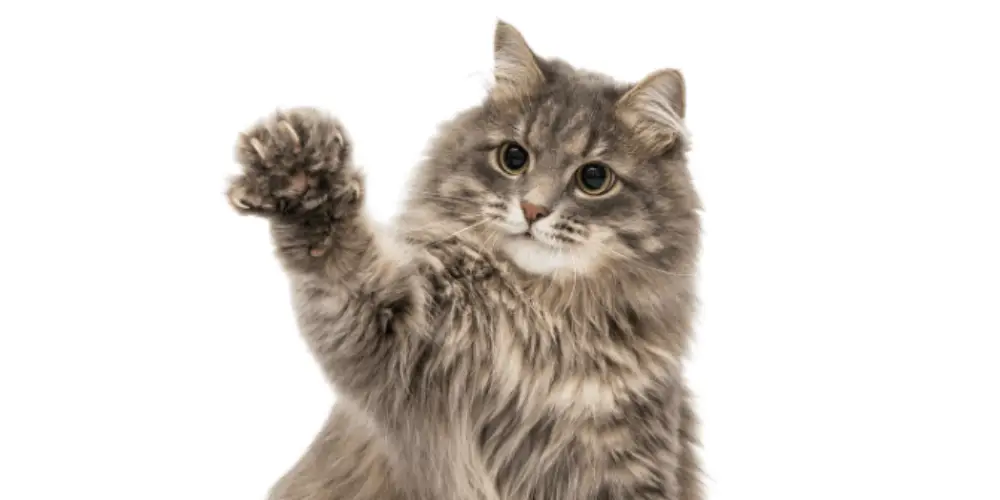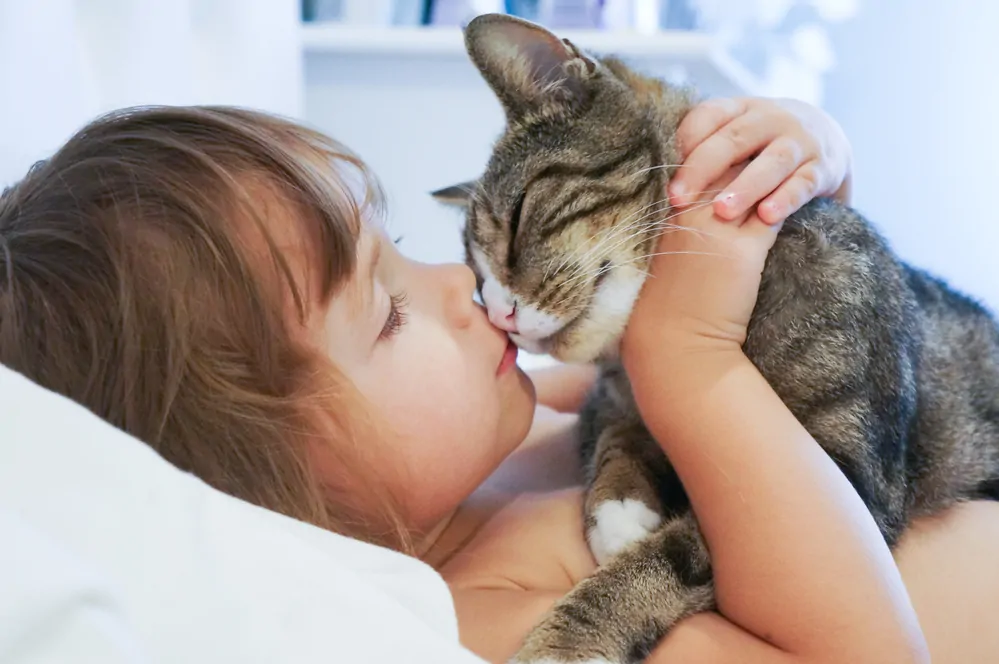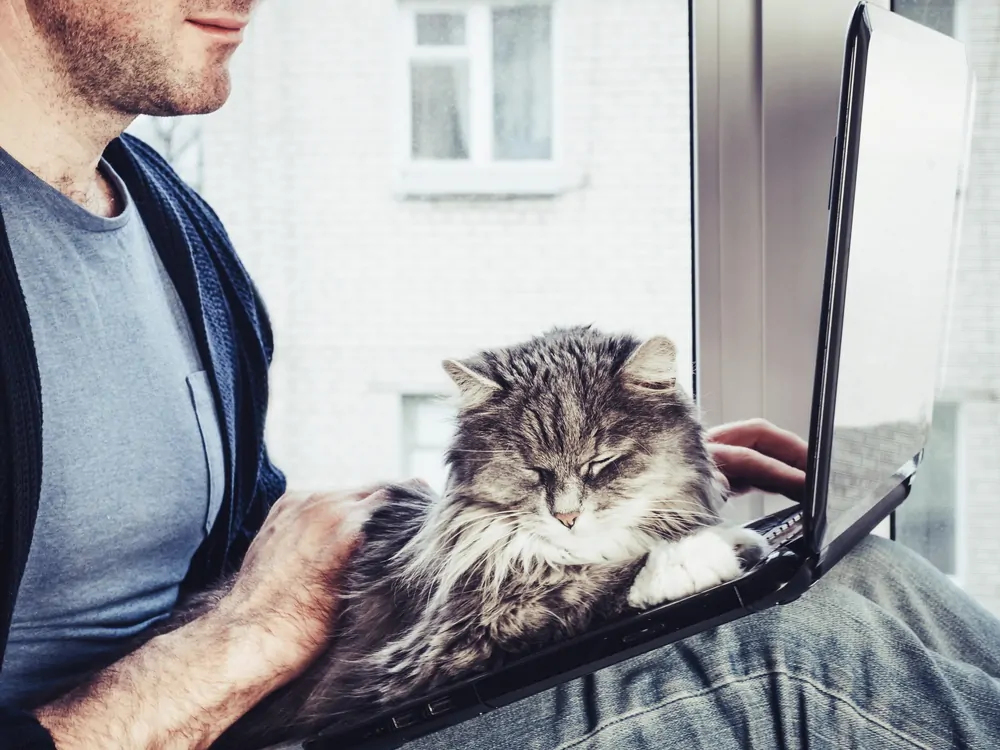The other day, my cat kept shaking its paw continuously. It’s the first time I’ve seen him do it, so I was worried that he had stepped on a sliver or a piece of glass and hurt himself. So I started to research different reasons why cats shake their paws.
Cats’ normal reaction is to shake off their paw pain during muscle spasms and after a recent declawing surgery. Cats may also shake their paws uncontrollably during tremors- an involuntary, repetitive muscle movement. A wet paw or something stuck in their paw will also trigger paw shaking in cats.
The good news is, in most cases, you don’t have to rush your cat to the veterinarian every time they shake their paws. Assess the situation, do your best to determine what the root cause is, and then decide your next step moving forward.
What’s The Reason Behind this Behavior?
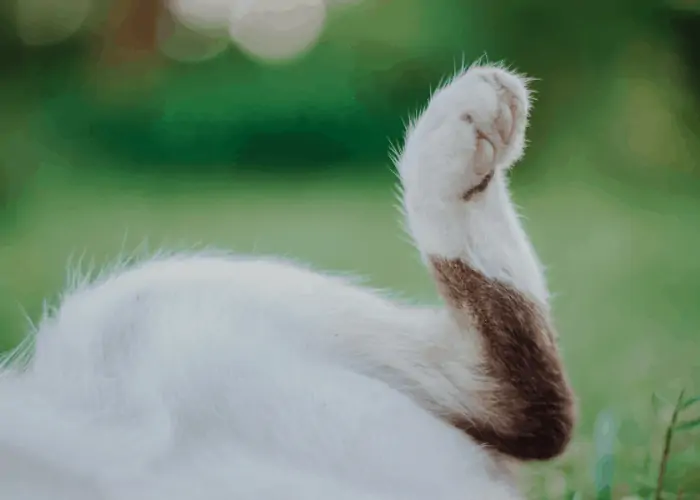
As we already established, there’s many different reasons a cat may shake their paws. If this is the first time you’ve noticed him or her doing it, you’ll want to make sure that they are not injured.
You can start by ruling out any of the obvious things that might make them shake their paws first.
More specifically, are their paws wet? The problem may be that simple if your cat’s paws are wet. As we all know, cats aren’t the biggest fans of water. If their paws are wet, they’re going to try to dry them or flick the water off as quickly as they can.
This type of behavior is commonly seen after cats have been outdoors during or after a rainstorm, or after they drink. This is just a simple instinct for your cat and is nothing to worry about.
If your cat’s paws aren’t wet, check to see if they have something stuck to them. If we had something stuck to our hands, we’d flick them to get it off. Cats are no different.
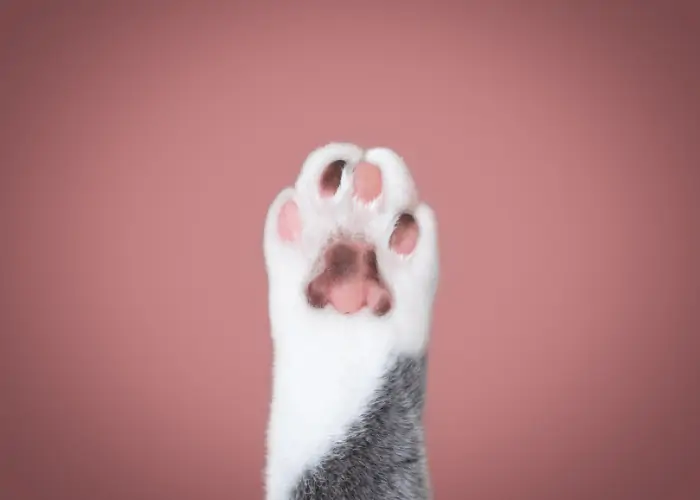
If your cat has something stuck to its paw, it could become annoyed and will flick their paws to try to remove it. Clumps of cat litter, snow, and dirt are all common things that could become tangled in your cats paws.
If neither of the above are the case, your cat may be injured. If they will let you, check the bottom of their paw to see if anything is stuck in it. Cats can step on glass, slivers, or other objects that can injure the bottom of their paw.
If this is the case, your cat may be shaking their paw in an attempt to relieve pain. Depending on the severity of the injury, you may need to take your cat to a veterinarian.
Jumping can also cause injury to your cat’s paws. If your cat has not set their jump properly, they can twist their foot. If this is the case, keep an eye on your cat’s behavior.
If they are limping or seem bothered for an extended period of time, you may want to consider taking them to a veterinarian as soon as possible to rule out any broken bones.
Other causes of paw shaking can include declawing pain or injury, or involuntary muscle spasms.
Can Declawing Cause Injury to My Cats Paws?
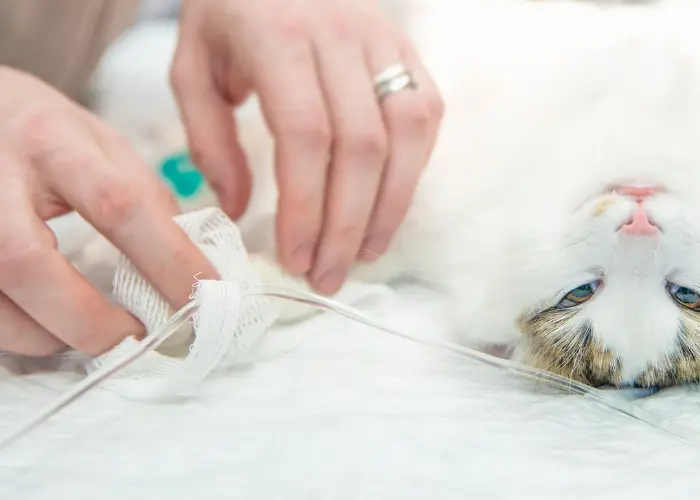
Declawing is a type of surgery, and all surgeries come along with risk of injury. When your cat is declawed, a portion of your cat’s knuckle is removed.
As you can imagine, this can be quite painful for your cat, and your cats feet can be sore for several weeks following the surgery. This discomfort may be accompanied by paw shaking in an attempt for your cat to relieve the pain.
That said, while pain and paw shaking is completely normal following a declawing surgery, this pain should reside within a two week time frame – as should the paw shaking.
If you notice that your cat is still shaking their paws two weeks following surgery, there may be a more serious issue at hand and you should take them to see the veterinarian as soon as possible.
Is my Cat Having a Muscle Spasm or Tremor?
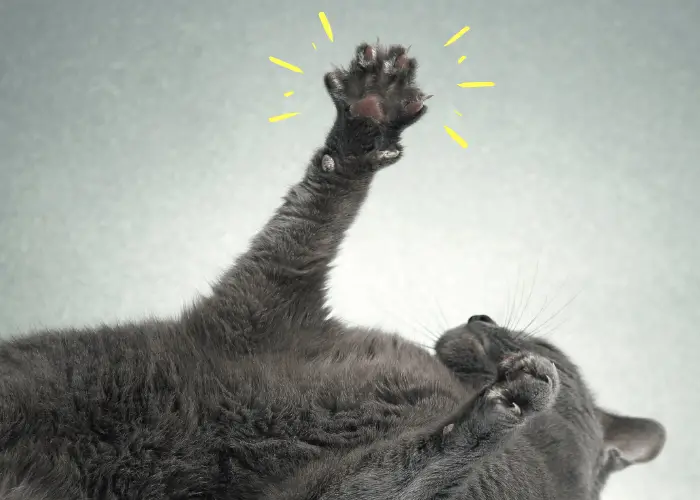
If your cat is not wet, has nothing stuck to their paws, has not obtained an injury, or has not recently been declawed, they could be having a muscle spasm or tremors.
Medically referred to as “painful involuntary muscle contraction”, this is a condition that can cause your cats muscles to spasm or twitch uncontrollably.
Tremor is defined as an involuntary quivering movement.
Muscle spasm and tremors can be caused by a long list of factors including nervous system disorder, genetics, kidney failure, rabies, and certain medications (to name just a few).
Obviously, some causes of involuntary contraction are much more serious than others. In fact, some causes can even be life threatening. For this reason, if you feel that your cats behavior is related to involuntary muscle trembling, you should seek medical attention as soon as possible.
Final Thoughts:
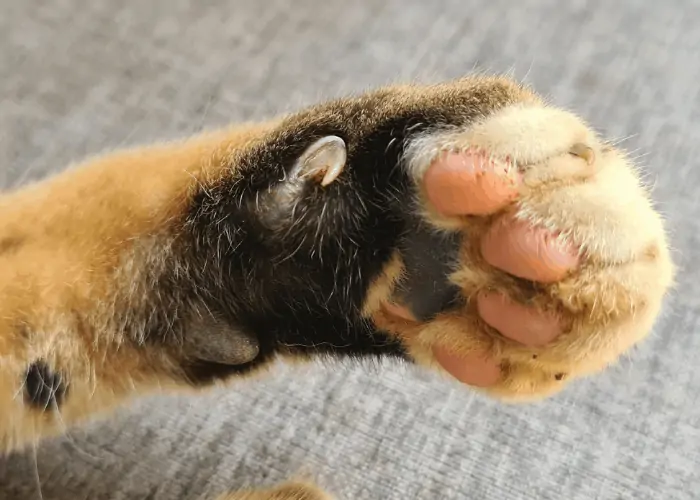
In conclusion, there’s lots of different behaviors that cats engage in that can give us insight into what they are feeling. If you notice your cat shaking it’s paws, it’s unlikely that it’s anything to worry about.
That said, excessive paw shaking could be a sign of injury, muscle spasm, or tremors. If your cat is shaking their paws more often than usual and you cannot see any visible injuries, you may want to take them to a veterinarian to rule out any worrisome causes.
Related Questions:
Why does my cat lick its paws?
You might be apt to think that cats lick their paws for the same reasons that they shake them. But this usually isn’t the case. Cats are very cleanly animals that don’t like to have dirt or debris on their fur or paws.
The food that they eat, especially wet food, can leave small particles and oils all over them – including on their whiskers, in their fur, and on their paws. While we might not be able to visually see these oils or particles, our cats can smell them – and it drives them crazy.
To remove these particles, cats use their tongues. A cat’s tongue has a rough surface that can be used like a comb through their fur. Unfortunately, cats can’t reach all areas of their body with their tongues. To improvise, they lick their paws and use them like a washcloth. And that’s why cats lick their paws.
Why does my cat shake its head?
If your cat is shaking it’s head often, it’s likely that something is causing them to be itchy, sore, or irritated.
The most likely cause is an ear infection, but cats’ ears can also become itchy or irritated by things like ear mites, allergies, or polyps. Insect bites can also make your cat’s ears itchy, leading them to shake their heads in an attempt to relieve the itch.
If your cat is shaking its head for more than 2 days, it would be wise to consult with your veterinarian. Ear infections can be very painful for your cat, so it’s important to rule that out as a cause as soon as possible.
Ear mites can also be very unpleasant for your cat, leading to extreme itchiness. For these reasons, you should have your cat checked out by a professional if they have been shaking their head for 2 or more days.
